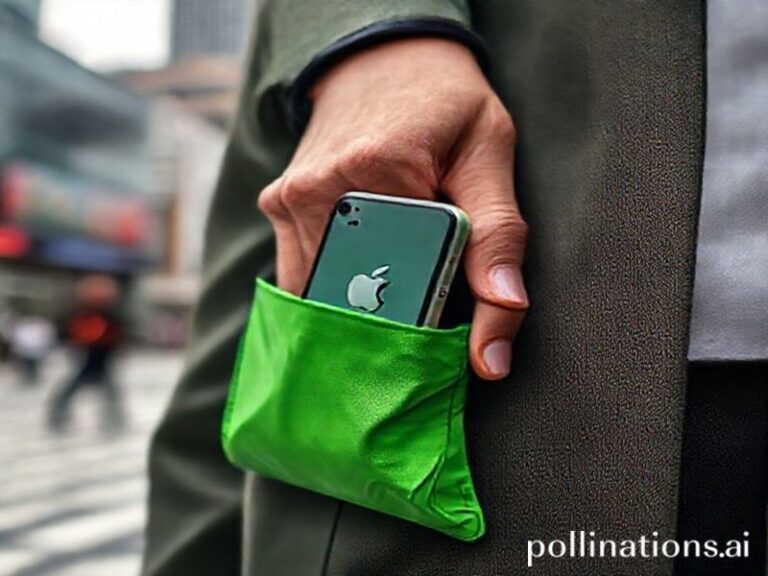How Dorset’s Hometown Paper Accidentally Became a Global Economic Bellwether
Bournemouth Echo: The Local Paper That Went Global Without Leaving Dorset
By Correspondent-at-Large, Dave’s Locker
In the grand, gaudy circus of world news, the Bournemouth Echo sits somewhere between the bearded lady and the fire-eater: provincial, slightly singed, yet weirdly compelling to anyone who’s ever watched humanity attempt to juggle flaming torches while riding a unicycle on a tightrope made of Brexit red tape. To the average foreign correspondent—battered by war zones, summit selfies, and the existential dread of airport Wi-Fi—the idea that a seaside freesheet in Dorset could reverberate from Kyiv to Kuala Lumpur sounds like the setup to a joke whose punchline involves seagulls and sovereign debt. Yet here we are, and the Bournemouth Echo has become a Rorschach blot for the planet’s anxieties.
First, the micro: the Echo still dutifully reports on parking-meter disputes, the sexual politics of the local bowling league, and whatever the pier’s feral pigeons have crapped on this week. Second, the macro: every time it does so, a Greek data analyst, a Tokyo trend forecaster, and a hedge-fund bot in the Cayman Islands scrape the story for clues about inflation, coastal erosion, or the likelihood that Western civilization will ultimately perish not with a bang but with a passive-aggressive note taped to a windscreen.
This is the new global supply chain of meaning. Raw information is mined in Bournemouth, refined into sentiment in Silicon Valley, and sold as volatility futures in Zurich. Somewhere in between, a pensioner named Beryl writes a letter to the editor complaining about dog mess on the promenade, and—voilà—South Korean semiconductor stocks hiccup.
To understand why, consider the world’s insatiable appetite for parochial authenticity. After years of doomscrolling through algorithmic atrocity, investors and diplomats alike have discovered that nothing calms the blood like 400 words on a vandalized beach hut. The Echo’s “Pothole of the Week” column is now quoted by Swiss reinsurance actuaries who swear that the depth of asphalt despair in BH postcodes correlates ominously with global supply-chain wobble. Traders call it the “Bournemouth Beta.” If the council can’t fill a crater on Commercial Road, how will the G20 fill the hole where globalization used to be?
Meanwhile, geopolitical rivals weaponize the Echo’s comment section with the subtlety of a drunk tourist on a pedal boat. Russian disinformation farms pose as disgruntled retirees named “Derek1947” arguing that wind farms cause impotence. Chinese soft-power bots reply with poetic haikus about offshore turbines heralding a harmonious future. The only genuine local still commenting is a 14-year-old troll named Kyle who just wants someone to notice his SoundCloud. The paper’s moderators—two underpaid journalism graduates and an intern who thought this was a vacation job—now possess NATO-grade cyber-forensics tools. They also possess four espresso machines and an ever-growing suspicion that democracy peaked somewhere around the invention of the deckchair.
Yet the Echo’s accidental internationalism does serve a purpose. When Ukrainian refugees arrived in Boscombe last spring, the paper ran a heart-warming feature on a baker teaching them to make Dorset knob biscuits. Within 48 hours, a Kyiv bakery had replicated the recipe, rebranded them “Crimea River Crunchies,” and used the profits to buy drones. The circle of life, Simba, but with more sarcasm and jam.
Still, the darkest joke may be on us, the cosmopolitan voyeurs. While we chuckle at the quaintness of seaside council minutes, Bournemouth itself is quietly becoming the world in miniature: aging populations, gig-economy Deliveroo drivers, Chinese property investors snapping up clifftop mansions as insurance against their own government, and a climate crisis that will see the Echo’s office relocated to the second floor by 2040. The paper’s final headline will probably read: “TIDE TURNS: EDITORIAL STAFF NOW ACCEPTING PAYMENT IN FISH.”
Until then, the Bournemouth Echo remains what it always was: a small mirror held up to a vast, ridiculous planet. We look, we laugh, we pretend we’re not looking at ourselves. And somewhere, a seagull steals a chip, the global markets shudder, and the ink keeps rolling off the press—assuming, of course, the ink shipment isn’t stuck in the Suez Canal again.







